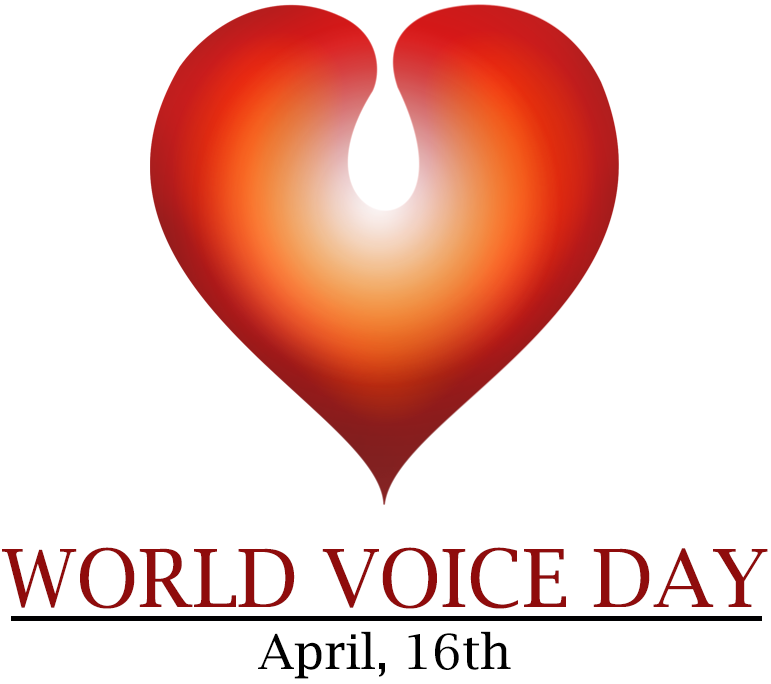Every year in April, otolaryngologist–head and neck surgeons — commonly called ENT doctors — and other voice health professionals worldwide join together to recognize World Voice Day. It's April 16.
World Voice Day, which was established 17 years ago, encourages men and women, young and old, to assess their vocal health and take action to improve or maintain good voice habits.
The long-term consequences of poor voice care can range from strained vocal cords and chronic hoarseness to deadly head and neck cancers.
The voice specialists of our Otolaryngology–Head and Neck Surgery Division — otolaryngologist-laryngologist Melissa M. Mortensen, MD, otolaryngologist Joshua M. Rosenthal, MD, and speech pathologist Marilyn D. Baricevac, MS, CCC-SLP — provide a range of services aimed at vocal health and wellness.
A singer's voice is a musical instrument and the special care it needs
can be applied to everyone who wants to have a healthy voice.

Here, Dr. Mortensen offers tips on how singers can ensure that their voice stays healthy throughout their career:
1. Think of yourself as a vocal athlete. Just like an athlete, it is important for a singer to receive the proper training regarding technique and use. It is important to not overuse the voice. It is important to get plenty of rest, eat a well-balanced diet, and get plenty of hydration. Just like professional athletes who spend hours perfecting their abilities, it is important for the singer to have the same disciplined practice schedule with intervals of rest and recovery to perform at an optimal level, regardless of genre.
2. Warm-up. Just as the athlete stretches it is important to have exercises to stretch-out your vocal muscles or warm-up. Every singer always needs a good vocal warm up before they sing, whether practicing or getting ready to go on stage, a good warm up is vital. Many new or inexperienced artists risk doing permanent damage to their vocal folds because they are unaware of the importance of doing a warm-up before they sing
3. Hydration, hydration, hydration. It is important to be well hydrated for any singer. Drinking non-carbonated and non-caffeinated drinks helps the mucous that coats the vocal folds to act as a lubricant. Most experts recommend 8-10 eight-ounce glasses of water daily to ensure this. Otherwise, you could find yourself with a dry scratchy throat, the need to clear your throat more often and find you require more effort to use your voice.
4. Be an original. You want your voice to be the next big thing and not be a copycat. Trying to imitate another singer's style could put undue pressure on your vocal folds and you may then sing or do things outside of your comfortable physiologic range or current vocal skill level. This could result in vocal injury. Let your style speak or sing for itself.
5. Optimize your schedule. Just like an athlete before the big game, you should not cram all of your preparation for your shows and auditions at once. An athlete would not try to prepare for the big game by practicing all in one day and neither should you. You should sing in small increments daily, about 30-45 minutes, until you have worked on building your muscular skill and stamina. As you improve you can increase the length of time and vocal difficulty of the pieces you are working on.
6. Avoid activities that cause trauma to your vocal folds. These include the obvious such as yelling and screaming and the not so obvious, prolonged speaking, speaking loudly, and singing loudly for prolonged periods of time. All of the above activities cause the vocal folds to bang together at a higher velocity. The immediate impact can be vocal fold swelling and irritation. The long-term impact can be vocal fold nodules.
7. Avoid alcohol and smoking. Smoking causes your vocal folds to be irritated. Constant irritation can lead to vocal fold edema which can lead to phonotraumatic problems. Alcohol can cause dehydration of the vocal folds so they don't vibrate effectively. Both alcohol and smoking can predispose you to acid reflux which can cause further swelling and injury to the vocal folds.
Like singers, everyone should protect their voice by drinking 6 to 8 glasses of water a day, limiting caffeine and alcohol, and avoiding tobacco smoke.
Many people don’t understand the signs and symptoms of voice disorders and often put off treatment, which can cause irreparable damage to their voice quality.
It's time to see an otolaryngologist when you have or suspect a voice problem and there are any of the following conditions:
|

